An interview with Alexandru Papadopol & Cristian Bota, on Tuff Money – HBO’s new series
A few days ago, I finished watching Tuff Money, the new HBO mini-series, directed by Daniel Sandu, with Cristian Bota and Alexandru Papadopol in the leading roles. Of course, we ended up binge watching it – both me and Florian (my boyfriend, who is hard to please) were hooked after the first episode, and that’s how we finished the whole season in just 3 days. I really liked how, with each episode, the clichés that you’re familiar with from the American movies here were overturned into simply incredible, but really comical situations. Papadopol and Bota play the main characters – Doru and Ionel, co-workers and good friends, who are in charge of the traffic lights’ maintenance in a small town in Romania. One evening, after work, they go for a beer at their favorite bar and they start joking around the idea of robbing one of the biggest banks in town. The good guys, funny and harmless, are taken by surprise and end up being accomplices in a robbery they’re trying hard to put a stop to.
I interviewed Papi and Bota in the lobby of the Intercontinental Hotel, right before turning the two protagonists from good guys into bad guys for the photo shoot that was scheduled afterwards. They told me how they met, how they built their characters, what they learned from each other, but also how they see Romania and what would change, or not, about our country.
Doru & Ionel are the two main characters of Tuff Money – HBO’s new mini-series. Co-workers and really good friends, who share a big secret – how did their friendship start, what’s their background?
Alexandru Papadopol: We got the final script where Doru & Ionel were already good friends. We could speculate based on the information the screenplay gives us. For example, Doru had a colleague – Cornel, who died and was replaced by Ionel, a younger guy with no experience at all; so Doru took him under his wing and taught him everything about the job, and in the show they discovered they share the same principles. Working together, they became good friends, like those detectives in American movies, who always work as partners.
Cristian Bota: We don’t have any other details about their background, what happened to them through the years, and frankly, I didn’t find that relevant for my performance. More important was the unfolding of their relationship through each episode, it’s where we built and worked on their relationship.
Were there any challenges in building your characters?
C.B.: Ionel is a simple guy, coming from a small town, who’s always looking to outgrow himself. He’s not happy with his job, even though he’s an engineer, not a wimp; if they were garbage collectors, the story would have probably been different. Nowadays, it’s hard for a young man to start a family, organise his wedding and have anything he needs. For me, the most challenging part was believing the story – it’s unreal and quite incredible. Would you believe something like this could happen in Romania? Or that it did happen?
I believe it can happen, but not at the same level as in Tuff Money. And no, I don’t believe it ever happened.
C.B.: Going through every scene and putting myself in those situations, that was the biggest challenge for me. Everything else came naturally.
A.P.: We had many shooting days and a ton of lines to learn but these details are a challenge for any actor. Probably the biggest challenge for me was to learn how to drive the cherry picker, in a way that you would believe that that’s my day-by-day vehicle. The psychology of the character was in the script, it was full of useful information.
C.B.: We got along quite well, since the moment we met at the casting calls. Papi wasn’t in the books for Doru’s role and we hadn’t met before, however, when we went for a cigarette to read our lines together, I started imagining the entire thing.
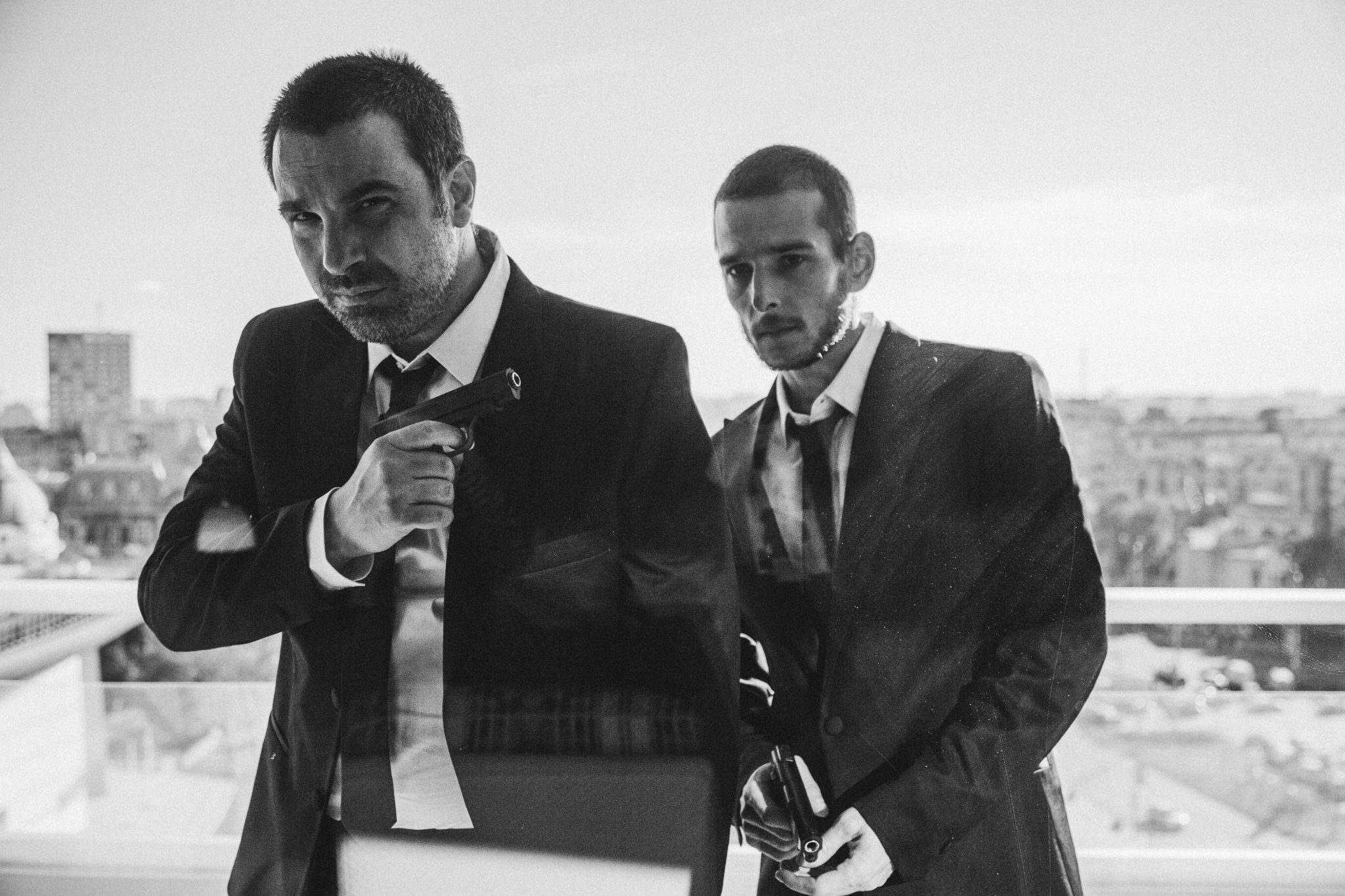
How would you describe the concept of friendship?
A.P.: If I knew the questions beforehand, I would have prepared some quotes. (laughs)
C.B.: I believe friendship is like a bullet that two real friends never fire. I had a lot of discussions on friendship so far. I think you need to feel good in a friend’s company and be able to rely on them, but not too much – I remember a stage of my life when I kept complaining about everything to a friend. One day he told me he’s sick of it, that our meetings are not so I can whine all the time, that he wants to see me happy and have a good time together. I first thought that he’s messing with me, but then I realized that he was right – he wasn’t bothered by the fact that I was whining, but because I was doing it every single time we met. Moral support is important, the reliability he’s there for you, even though he’s not always listening to your crap.
Papi, you have worked on TV shows before – I believe your last one was in 2013. Has the TV industry evolved in these years?
A.P.: What I know is that no one is investing in a series with loads of episodes anymore, like it was back in the days. Now everyone goes for around 10 episodes per season, so you can tell if it’s worth it or not. I believe this is a good change when it comes to the quality of the product – more money for less episodes can also mean there’s more attention to story and details. There’s also the streaming networks which have developed a lot since 2013 – there’s a big competition now, people are not watching TV as much as they did ten years ago. Things have fundamentally changed.
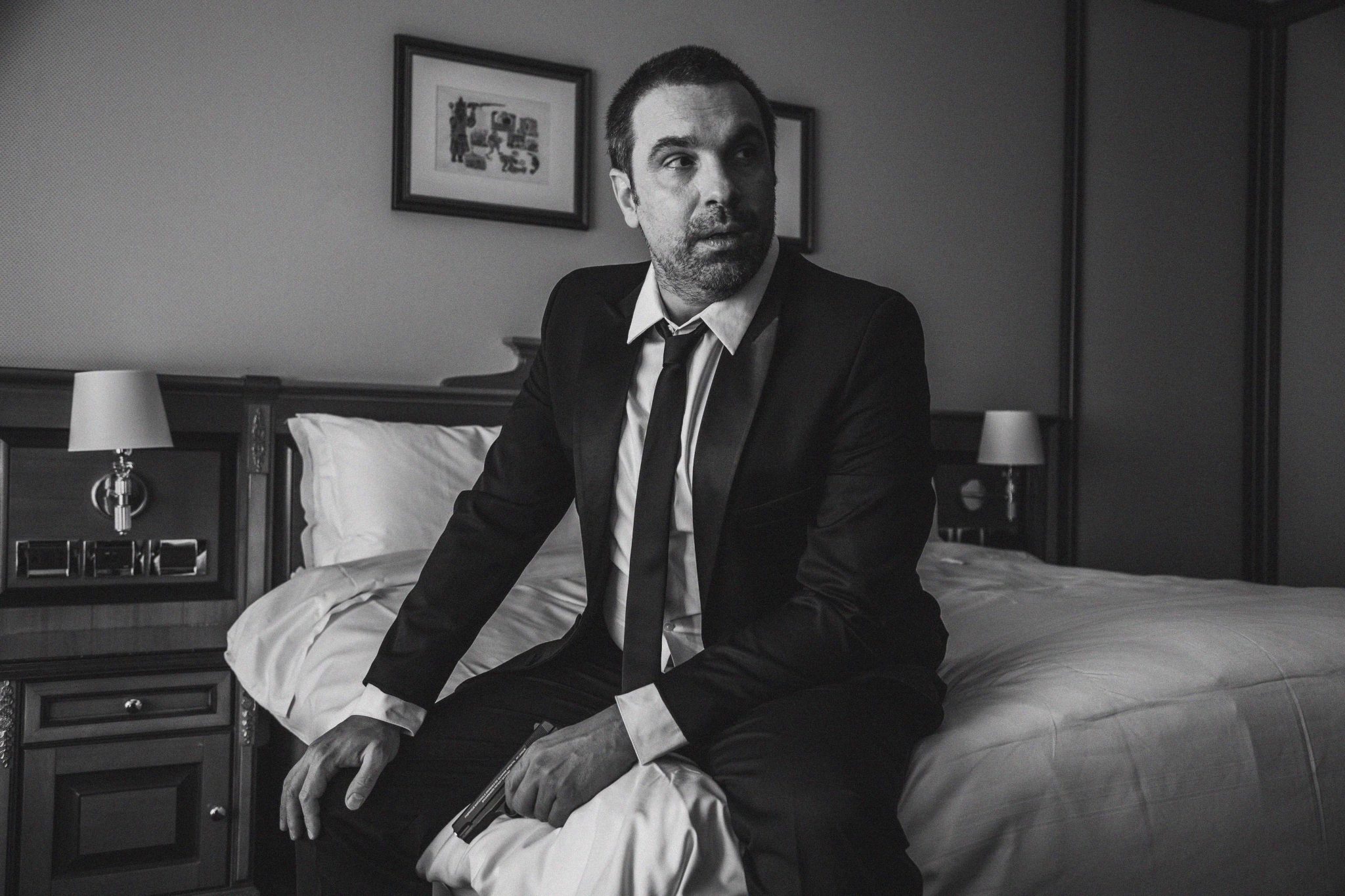
Tuff Money was shot as a feature film, even though it is a mini-series. I can’t compare it to past experiences, as they have nothing in common.
Cristian, you have tried your luck as a director, too – your short film Karmasutra was nominated at the GOPO Awards in 2016. What have you learned through the process?
C.B.: That I want to be more than just an actor. However, I wasn’t supposed to direct Karmasutra. I wrote a script very close to my heart and sent it to various people, who said it’s too expensive and impossible to make. This made me want to do it even more, so I started looking for directors, but I didn’t find someone to show interest in it, so I took on the role of the director.
This way I’ve learned that life comes with loss or defeat, as well, that there isn’t success or great results without hard work – if you want to win, you should never stop working for it. And I have learned to also doubt myself.
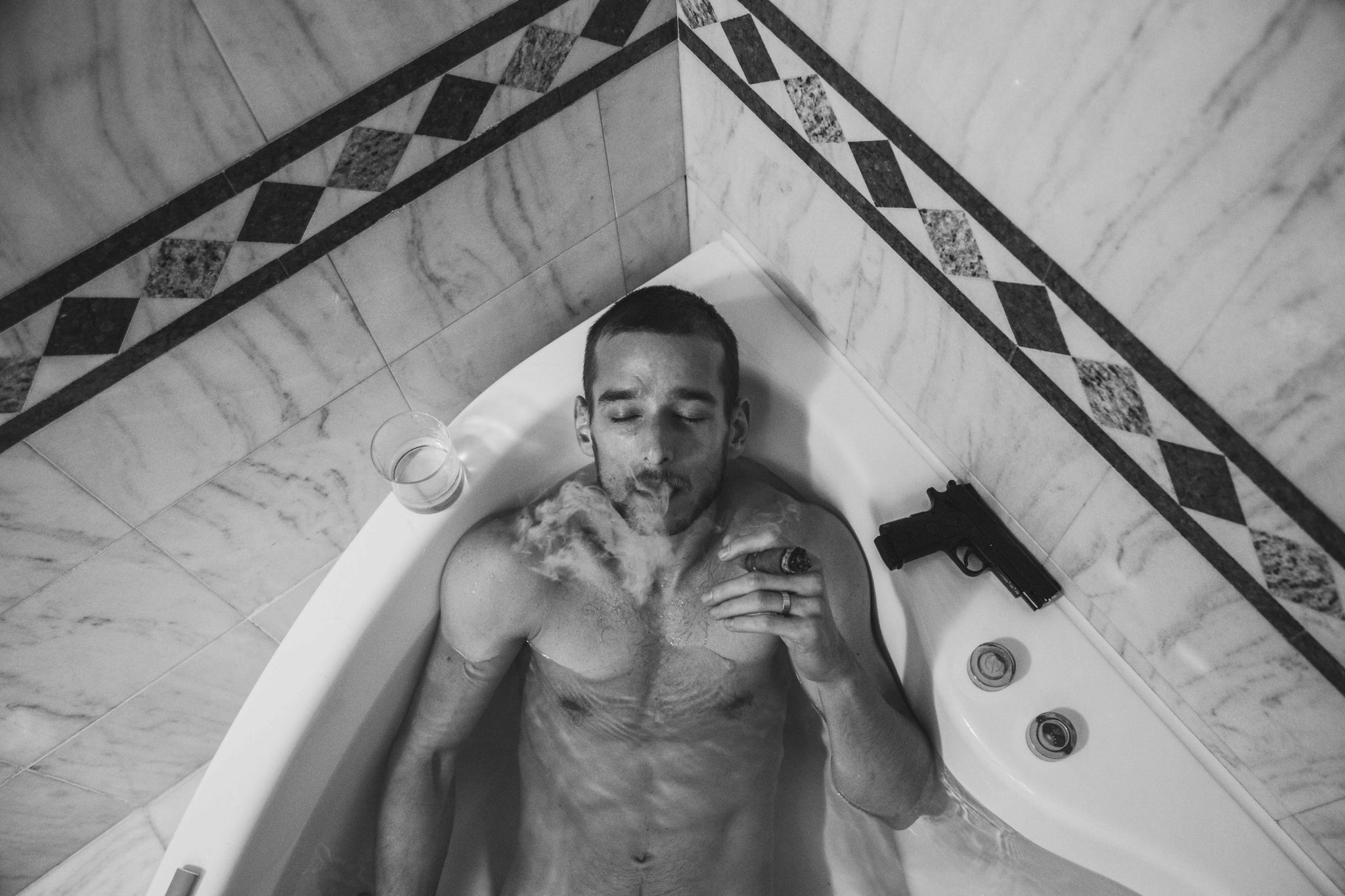
For each of us who’s worked on a film set, there are always moments we think of or remember with a smile on our face. Could you share with us some of the memories you’re both fond of from Tuff Money’s first season?
C.B.: The first thing that popped into my mind is a day when Papi came to the trailer, started taking off his overalls and couldn’t stop laughing. And now that I think about it, I remember all those moments when we both felt we can’t take it anymore.
A.P.: Like the day when we were filming in the cherry picker, which was really hard to lower and then draw up to the exact spot it was before, and it was so hot outside, so they were throwing us water bottles.
C.B.: And we had this umbrella that I was sometimes using to pick up stuff that we needed at that moment. (laughs)
A.P.: That’s when we shot the garden hose scene from the first episode – we were so hot up there, so it was exactly what we needed.
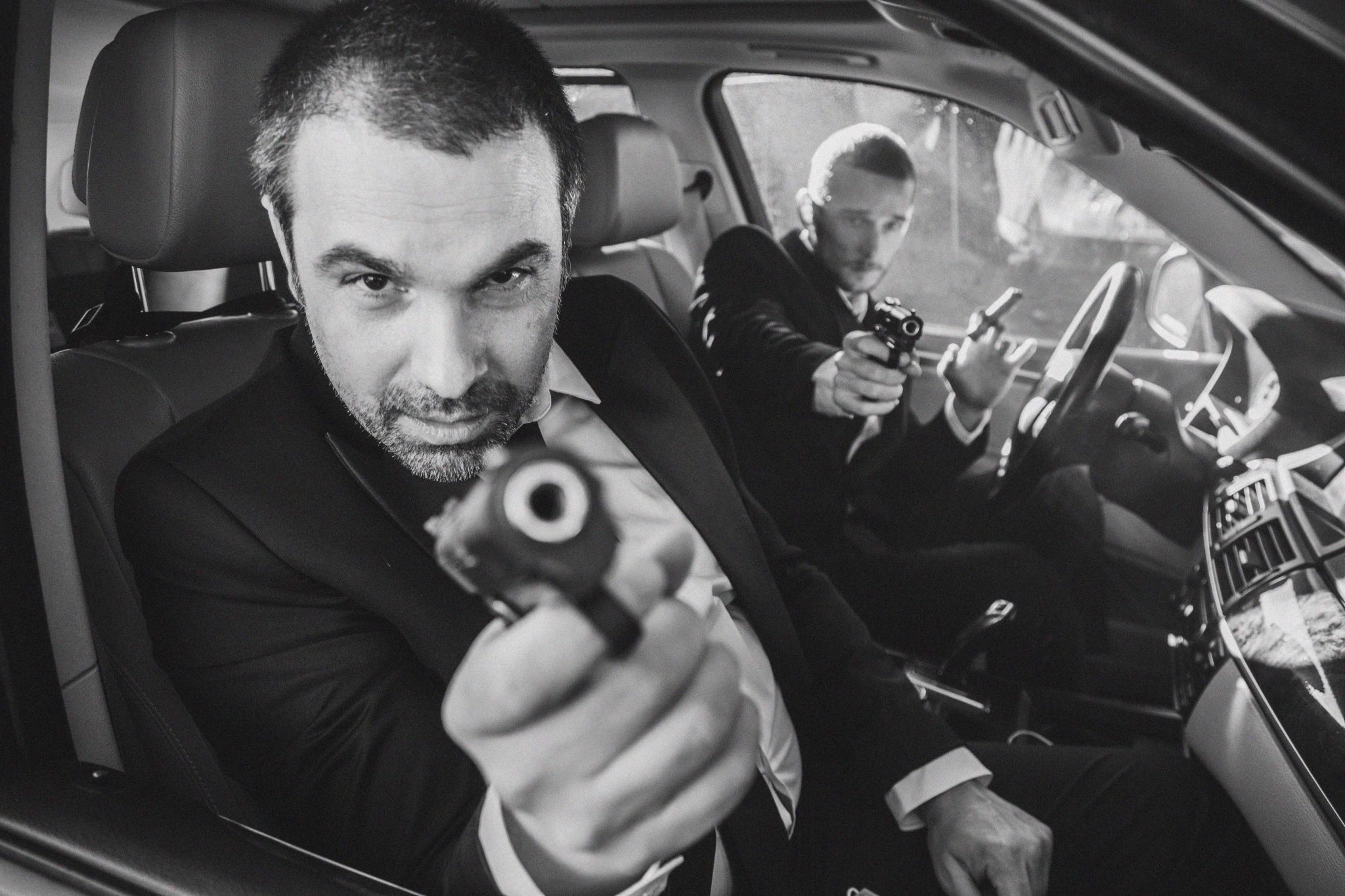
C.B.: Another moment I remember with pleasure, I had just finished a daytime shoot and Papi was about to have a nighttime shoot – and I waited for him, I knew he was going to be exhausted. They were shooting a scene up, next to the stork nest, and I was wondering how much more he would be able to endure – it was already over time, the crew members were grabbing sandwiches, when all of a sudden, we heard Papi from above – “man, but what about me, don’t I need to eat, or what?”, but with a lot of humor.
A.P.: We used to stay a bit longer, after the shooting time was done. Daniel (n. the director) told us at the beginning we should be like a family. And we were, we had a lot of fun.
Could you tell me the most important acting lesson you received so far, in your career?
A.P: I was shooting for Back Home, directed by Andrei Cohn, and we were on the first scene, where I appear with a Dacia Logan, I open the trunk, grab a bag and get into the front yard, where Florin Zamfirescu is waiting for me. It was a long shot and I thought to grab the bag in a different way, in a more “imperfect” way, let’s say. We were already at the third take, when Andrei asked me to come and watch the scene, and he asked me what I would call it – “what do you mean, what would I call it? I have no idea.” And he replied – “I would call it «A guy opens the gate».”, and I told him that’s fine with me. “So, what you have to do is get out of the car, open the trunk, grab the bag and get in. That’s all.” – and so I did, without thinking too much at anything else. You know David Memet once said – “you have a line, just say it” – and basically, that was it. And because it happened on the first day of shooting, it cleared up a lot of stuff.
C.B.: My first big lesson came from prof. Adrian Titieni, who taught me to stay true to myself. The second lesson I got when I took an MA in Acting and realized no one is interested in what you do or what you want to say. Everything else I learned by experiencing, getting out of my comfort zone. Being an actor requires learning all of your life, every role you play is infinite.
Papi, you are one of the most well-known Romanian actors, with 20 years of experience in theater and film – to which we can add television. Cristian, you are an emerging voice, in the process of making a name for yourself, but you also had the opportunity to be in the shoes of a film director. I’m curious to know what you have learned from each other.
C.B.: I gained more freedom in my acting, I learned that comedy can also be serious, that drama can also exist in beauty – that everything is not just black and white. Papi can be so subtle that sometimes it’s hard to be aware of it when you’re there acting with him – I saw it now, watching the show; you can sense the experience, you definitely have something to learn from him.
A.P.: I think this miniseries couldn’t have been made if the two main actors didn’t have chemistry and enjoy their acting in front of the camera. Hats off to those who did the casting; if we hadn’t enjoyed each other’s acting, it would have definitely affected the workflow and their relationship in the film – which involves two people who really like and appreciate each other.
I remember now, when I worked on my first film – Dough and Money by Cristi Puiu,, and Puiu was talking about the chemistry between the actors, in front of the camera; they need to have that chemistry, even if they don’t have a relationship beyond the lenses. There simply needs to be good communication and mutual admiration.
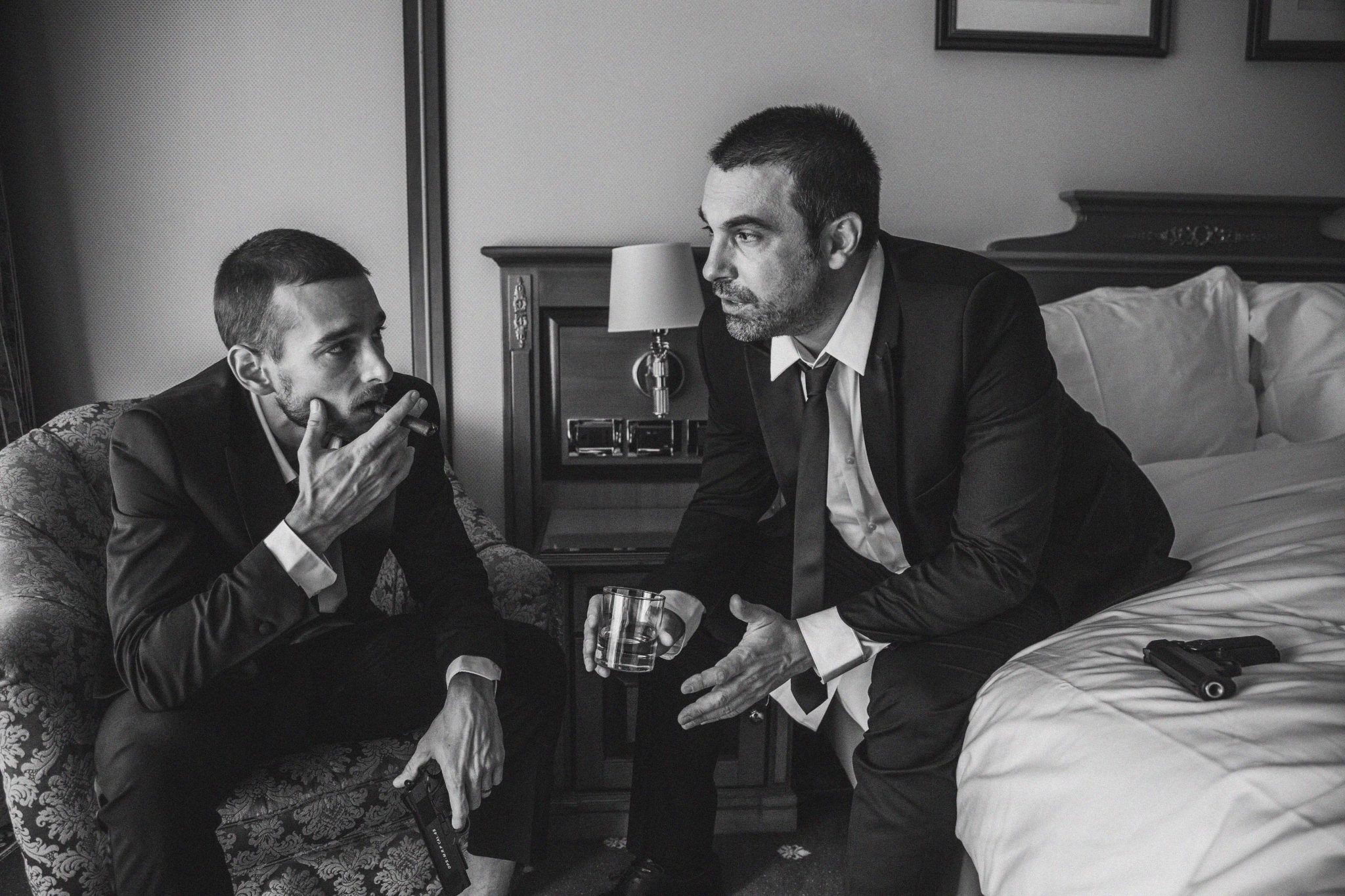
In Romania, almost everywhere you look or go, there’s some corruption going on – it’s one of the things that the HBO series – Tuff Money, confirms in a rather comical way, and which you get from the first two episodes. How does Romania look, in your eyes?
A.P.: Since I’m older, I can tell you that things have changed fundamentally. I lived in Ceausescu’s time, as well as in the ’90s, which were hard years, and I can say that Romania is doing well, things are changing, maybe not as fast as we would like, it depends on what you want to happen.
C.B.: I’m part of the post-communist generation and I think that corruption still exists, in a much more “cunning” way – so far you had the most basic kind of corruption, wherever you went, you also offered some bribe. Now, on the surface, everyone seems to go for the right behavior, but I don’t think corruption will go away – it exists in the bureaucracy, in the state offices or institutions, and it will always exist in these places. Maybe now it’s just more difficult to go off-book, we’ve evolved. But I don’t think Romania is in a good place.
A.P.: I saw people getting out of DUIs by just paying some bribe, now it’s not something you can do anymore. You could cut trees in Cismigiu Park and nobody would have said anything – now we have apps, NGOs, you can call to report any kind of misdeed. In the ’90s it was all happening in plain sight, today there is no such thing anymore.
C.B.: Because now you can film anything and put it on the internet.
Could you name three things you would change about our country?
A.P.: I don’t know, man – the climate, I would like it to be warmer. (laughs)
C.B.: I would like us to have more theaters, especially for young people, more funds for cinema, so maybe a new Cinema Law, also – I don’t know, I might not be so good at these things. And a safer medical system.
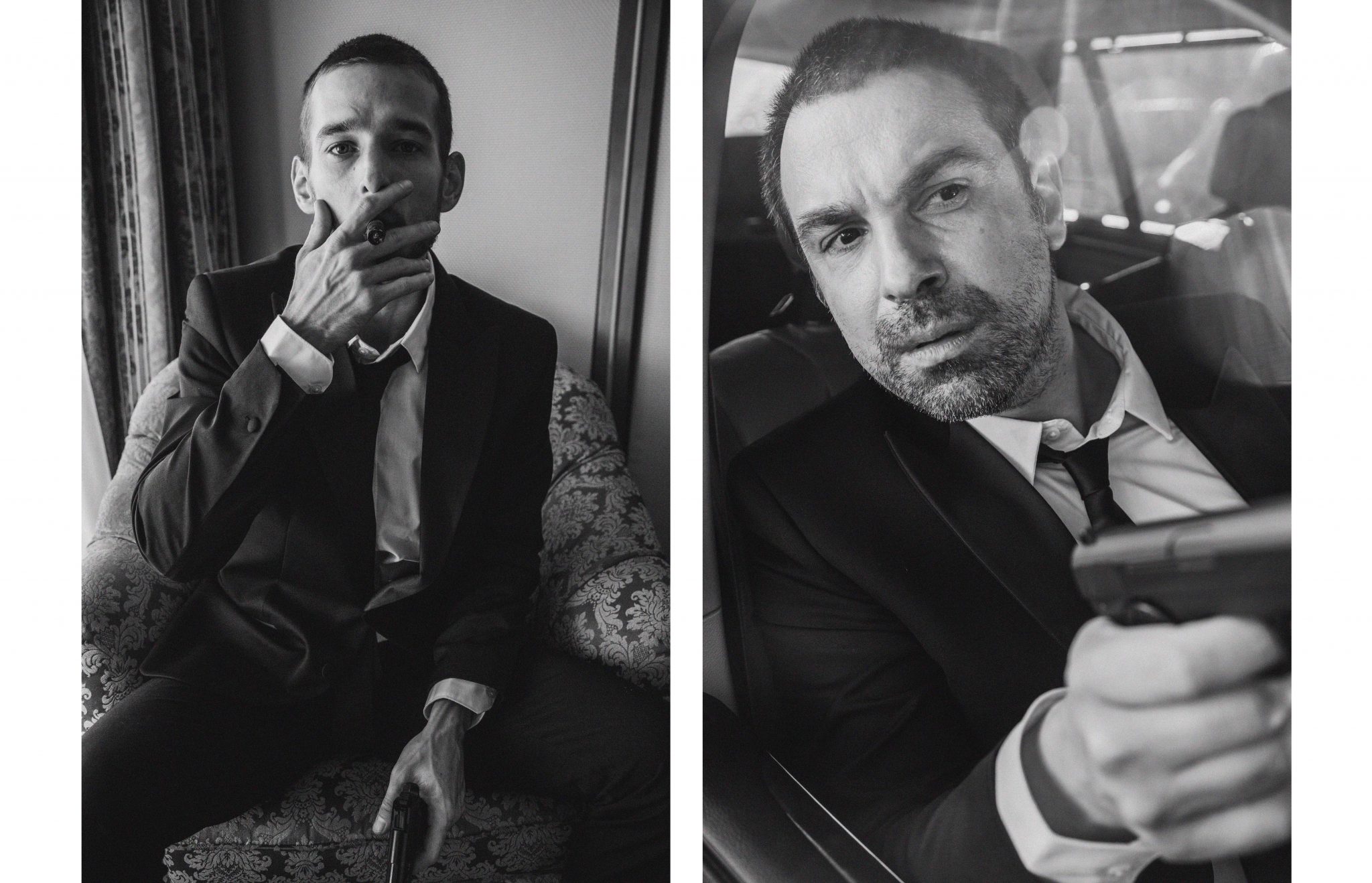
Tuff Money is available on HBO everywhere within Europe from the 22nd of November.
Title
Tuff Money
Director/ Screenwriter
Daniel Sandu
Actors
Alexandru Papadopol, Cristian Bota, Valeriu Andriuta, Medeea Marinescu
Country
Romania
Year
2020
Distributor
HBO Europe
Film producer and founder of ADFR, she dreamed since she was little of having a magazine one day. Alongside her job as editor-in-chief, she writes the interview of the month. She loves animals, jazz music and films festivals.
